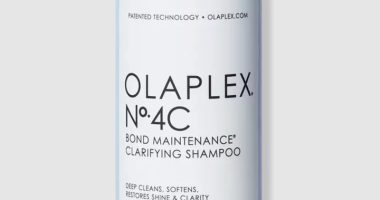
Jurors will be able to hear limited evidence of Theranos Inc. founder Elizabeth Holmes’s wealth, and from customers who said they got faulty blood-test results, a judge concluded in a weekend order that will help shape her criminal fraud trial.
Ms. Holmes faces multiple counts of mail fraud for allegedly deceiving investors, patients and doctors about Theranos’s blood-testing technology, which purported to test for a range of health conditions from a few drops of blood extracted from a finger prick. Ms. Holmes has pleaded not guilty and faces an August trial, after several delays due to the coronavirus pandemic and news that she is due to give birth in July.
U.S. District Judge Edward Davila in San Jose, Calif., issued a 100-page ruling Saturday night in response to more than 20 motions and three days of hearings over what evidence could be presented at trial.
Judge Davila ruled that the jury could hear testimony from patients and doctors who used Theranos tests and said they got inaccurate results. Ms. Holmes’s lawyers had argued such testimony would amount to using anecdotes to build the government’s fraud case, since the 11 patients identified weren’t a statistically significant sample from the millions of tests Theranos conducted.
Judge Davila disagreed. “Evidence of even one inaccurate result tends to show that Theranos was producing inaccurate results, even if it does not fully prove the point,” he wrote.
The judge did, however, restrict the former patients to testifying about the facts of the inaccurate test and the money they lost by paying for it, not about any emotional or physical harm that may have befallen them if they had followed the faulty test’s results. A jury could be prejudiced by emotional testimony from, for instance, one patient whose test results led her to believe she had miscarried when she was in fact still pregnant, Judge Davila concluded.
Representatives for Ms. Holmes and the U.S. attorney’s office in the Northern District of California didn’t respond to requests for comment Sunday.
Ms. Holmes has also argued that the government’s case is only anecdotal because it doesn’t have access to a database that recorded millions of Theranos blood tests and quality-control data. Ms. Holmes and prosecutors each blame the other for the complex database becoming inaccessible around the time that Theranos shut down in 2018.
For now, Judge Davila ruled, prosecutors won’t be able to tell jurors its narrative of “Theranos’ nefarious destruction” of the database while it was subject to a grand-jury subpoena. He said he could revisit the ruling if they can show a more direct connection to their case against Ms. Holmes.
Judge Davila restricted the kinds of details prosecutors can give around Ms. Holmes’ lifestyle, concluding that while her status as a Silicon Valley chief executive and the wealth and perks that role granted her are appropriate to mention, government lawyers must stop short of citing specific purchases or brands of clothing, hotels or other personal items she spent money on. The judge said that “each time Holmes made an extravagant purchase, it is reasonable to infer that she knew her fraudulent activity allowed her to pay for those items.”
In a win for prosecutors, Judge Davila said the government could present evidence related to Food and Drug Administration inspections of Theranos labs and a 2016 report issued by the Centers for Medicare and Medicaid Services that found deficiencies in the lab.
The judge agreed with Ms. Holmes that prosecutors can’t present expletive-laced chants that Theranos employees made directed at journalists and competitors, saying they do little to help prove allegations that the technology was inaccurate and that she misled investors and customers.
Judge Davila also decided that a series of Wall Street Journal articles on Theranos couldn’t be entered by prosecutors as evidence. Prosecutors said the articles would help show Ms. Holmes doubled down on her fraud even after it began to be exposed, but Judge Davila said the articles weren’t admissible because the reporters who wrote the articles wouldn’t be testifying.
The Journal first reported in 2015 that the company’s proprietary technology was unreliable and that the company conducted most of its tests on standard blood-testing machines that it sometimes modified.
The Troubles at Theranos
A look back at some highlights of WSJ coverage, selected by the editors
Write to Sara Randazzo at [email protected]
Copyright ©2020 Dow Jones & Company, Inc. All Rights Reserved. 87990cbe856818d5eddac44c7b1cdeb8








